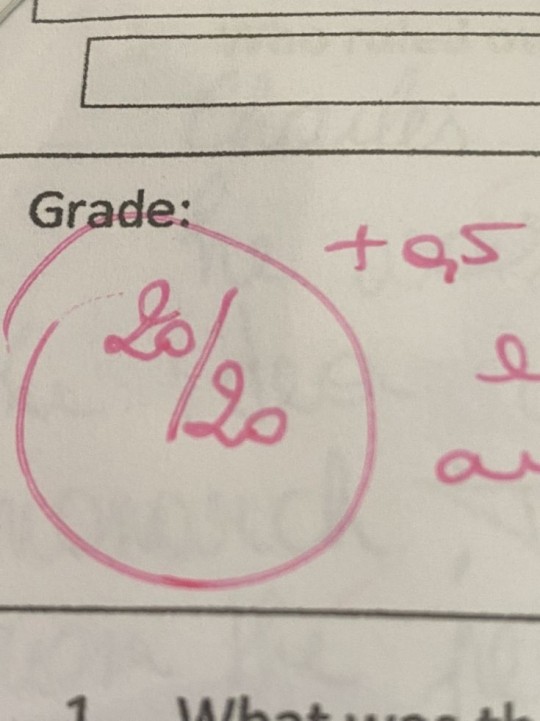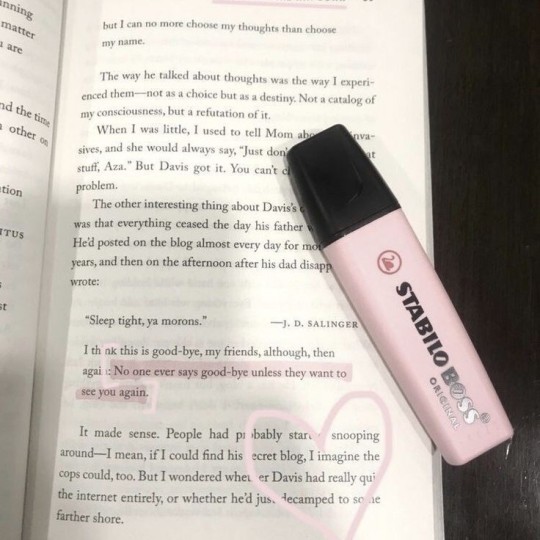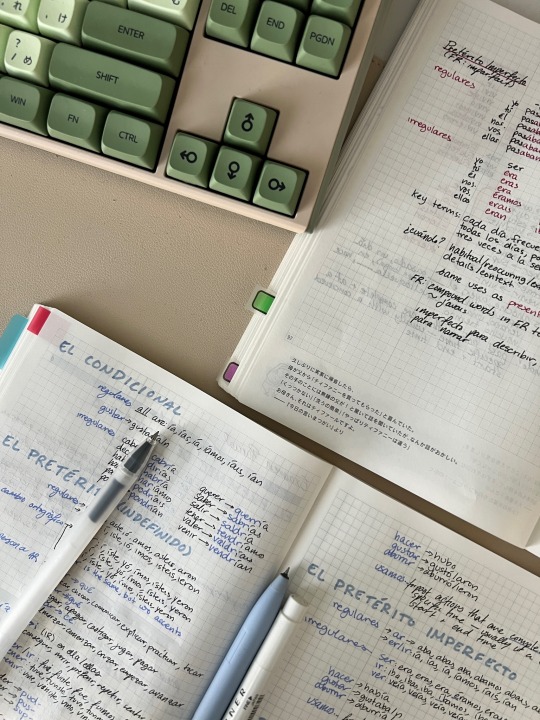#Learn spanish
Explore tagged Tumblr posts
Text
Miguel O'Hara x Hispanic reader
Fem civilian reader
Thinking of miguel being all tough and 'manly' but when he's near you, he gets all shy and nervous. 😔💗
+18 | Sub¡Dom relationship | voyeurism | vibrator | miguel being a cutey | Male Orgasm | Humiliation kink | Praise kink | nsfw
(English is not my first language)

Gif not mine
Miguel is a man that has a really good reputation, serious, manly, tough giant hero that whoever dares to cross his path with a slight different option to his, is done.
People close to his job environment were kinda scare of him, but tried not to make it to obvious, in case he gets more furious about it.
That scary, angry expression of his was immediately gone once he sees you, smiling at him, his gaze changes to a more relaxed one. He was finally home.
You didn't get up from the sofa and just lift your finger, you can see his face light up and rapidly goes towards you, getting on his knees immediately, kissing your hand.
'¿Que tal estás, amor?' (How are you, love?) You asked, pleased by the quickly submission of your giant boyfriend.
You rub his cheek cutely, and touch his soft wavy hair 'Bien, estaba un poco estresado por el trabajo, but contigo a mi lado im much better' (Good, i was a little stressed 'cause work, but w you by my side im much better).
Miguel never considered himself a submissive men. All the other relationships he has been in before, were pretty normal, but with you he is a different men, he feels like he only exists to please you, not only sexually, of course.
You want something? He give it to you no matter what, no matter the money, the time. You want to fuck him in the middle of his work?, You have it.
No complaints, no 'buts' , no 'i can't' .
You love going outside w him, watch him begin all tough and demanding to the people around him.
So funny seeing him squirm and change his expression when you set the vibrator to the max, you can't help but laugh at him when he gives those pleading eyes.
Poor thing, he knows you won't stop, you're gonna make him cum in front of his employees. :(
He gets all flustered, but he never changes his grumpy face.
'i have to go for a moment i'll be right back' you see how he quickly runs to the restroom. You grab your phone, and immediately send him a message '¿Quien te dio permiso a irte? Brat' (Who gave permission to go? Brat)
'Please, mommy, not infront of them'
'salte, miguel' (get out, Miguel)
And as the good boy he is, he obeys.
A couple of minutes of your teasing is all it takes for him to cum in front of everyone.
Surprisingly no one noticed were their scary boss weird behavior comes from and they tried to ignored it.
'Good boy' you whisper closer to his now very warm face
He looks at you flustered, proud and surprised of his good behaviour and acting skills.
------------------------------------- • 🍒
Love y'all, if there's any bad grammar please let me know 😭. (Requests are open)
#sub miguel o'hara#miguel o hara x reader#miguel o'hara fanfic#hispanic reader#fem reader#miguel ohara#miguel o'hara x f!reader#subbmisive#subby men#learn spanish#miguel o'hara#fluff miguel O'Hara#fem civilian reader
2K notes
·
View notes
Text
The -go Verbs
When you're learning the present tense, there's a subset of verbs that are commonly called the -go verbs, because the present tense yo form ends in -go
The verbs in question are usually one of two things: just plain irregular, or regular except for that particular conjugation
The -go verbs include:
tener "to have" -> tengo
hacer "to do/make" -> hago
decir "to say" -> digo
poner "to put" -> pongo
venir "to come" -> vengo
salir "to leave/exit" -> salgo
valer "to be worth" -> valgo
oír "to hear" -> oigo
caer "to fall" -> caigo
traer "to bring" -> traigo
These will also apply to the majority of verbs that are connected to them
-
satisfacer "to satisfy" -> satisfago
componer "to compose" -> compongo
bendecir "to bless" -> bendigo
maldecir "to curse" -> maldigo
prevenir "to prevent" -> prevengo
sobresalir "to stand out/to exceed" -> sobresalgo
atraer "to attract" -> atraigo
And so on
-
These are important to keep in mind for two reasons.
First is eventually when you get to present subjunctive; present subjunctive takes its conjugations from the present tense yo forms
As an example, if decir goes to digo, then you'll notice that present subjunctive looks like diga, digas, diga, digan, digamos
You'll also see some of this for commands, but that's a whole other topic with its own host of weirdness all its own...
The second thing is that many of these verbs will have an irregularity in the future and conditional tenses; not all of them, but enough to be aware of
As an example, tener goes to tengo... but then in future it would be tendré "I will have" and then conditional tendría "I would have / I could have"
...You'll find that the irregularities in future and conditional often come with a D, R, or RR [as an example saldría, haría, querría]
Future and conditional share the odd conjugation patterns but the ending is different; pondré/pondría, haré/haría, diré/diría etc
All of that to say is for present subjunctive if it's irregular in the yo that's the pattern you follow
...and future/conditional tends to take its irregularities from the -go verbs [but not always, as querer is irregular there and there are some others, but in general the -go verbs tend to be a small subset because of expected weirdness]
-
*Small Side Note: There's also one other verb to note technically that is also a -go verb. That is asir which goes to asgo. The verb asir is "to grab/seize" but it's highly unlikely that you'll use it or see it. There are some contexts where you'll see el asa (technically feminine) or el asidero meaning "handle" or more literally "place to grab"... but you almost never see asir in regular usage.
Predominantly if you're saying "to grab/hold onto" you are either using agarrar or aferrar, or in some countries like Spain it's coger
[but be careful about using coger, because in some countries that's quite a vulgar verb for "to fuck"]
I only mention asir because if you look up the -go verbs, they will mention asir but it's not the common verb used for what it means. It's included on the list of -go verbs, and that's usually where people will see it the most. To be clear - outside of the verb list, I can't say I've seen or heard asir used in common Spanish because there are just so many more common verbs to use
140 notes
·
View notes
Text
one thing about learning languages is that yes, learning in itself is fun but what’s even greater is the fact that all your other interests and hobbies can be looked at with another shade of light. I personally love philosophy and to be able to read another language’s nuances and concepts and understand it more than you ever could with a translation? incredible.
#language learning#languages#langblr#learn chinese#learn french#learn german#learn korean#learn spanish#study korean#language#polyglot#philosophy
696 notes
·
View notes
Text


#spanish#spanish language#spanish phrases#spanish food#spanish for beginners#learn spanish#quesadillas#hispanics#latinos#latina#creativity#spanish langblr#langblr#languages#learning languages#language#language learning#writing#creative writing#writers on tumblr#writers#writeblr#writerscommunity#writing community#writer#writers of tumblr
79 notes
·
View notes
Text
Spanish Media/Input Recommendations?
Can you guys comment me some good media/input recommendations for someone learning Mexican/Spain Spanish? I' talking about any and all that you guys find interesting, whether you learned Spanish on your own or it's your native language!
Books
Podcasts
Tv Shows
Movies
Youtube channels
Songs/Musical Artists
Favorite Spanish teachers/tutors on Italki
Literally anything!
Thank you guys <3
#spanish studyblr#spanish langblr#spanish learning#spanish language#spanish#langblr#langblog#language tips#language learning#foreign languages#languages#language studyblr#language study#language goals#learn spanish#italki#spanish podcast#spanish books#university student#college student#español#mexican spanish#student life#student#college studyblr#college studyspo#language resources#language blog#languageblr#language learning tips
164 notes
·
View notes
Text



Language Resources 🎀
*that I currently use for studying Spanish. When I pick up studying Japanese again, I will make a list for that as well <3 I currently use a handful of resources for learning Spanish, and they've all proven very useful so far!
🩷 My Current Resources for Spanish
Busuu - hands down my favorite language learning app. So much better than Duolingo, in my opinion (especially for languages with a different alphabet/writing system). I bought the premium for a year, which will expire in Septmeber, but I'm debating renewing again because I love it so much.
LingQ - I like using this for reading in Spanish. It gives me different types of things to read about, and while I don't have premium, I do put all the words I don't know into flashcards on AnkiApp on my laptop and translate anything I don't know using SpanishDict.
SpanishDict - favorite translation/dictionary app. I know it has lessons you can use, tho I haven't tried it yet, but I really do love this app. It's super helpful when I'm making flashcards or writing random vocabulary notes.
Goodnotes - This is a general note-taking app, but I love it because it allows you to import and write on PDFs, and that's just perfect for me! I've downloaded free PDF short stories/children's stories in Spanish and made notes of words I don't know, and taken notes in the app too. Definitely my favorite notes app, ever.
Italki - I know this is a website, too, but I use the app. It lets you work with professional teachers/community tutors in your target language. You can have structured lessons or just use it for conversation practice. I did a trial lesson not too long ago and have an upcoming lesson booked out in about 5 days. You pay per lesson, so there is no subscription, and there are so many languages and teachers/tutors to choose from. I did a lot of research before choosing a teacher, and I'm very happy with my decision so far. Definitely useful if there's not native speakers near you or you're like me and not confident talking to people you know in your target language/their native language.
Quizlet/AnkiApp - I use AnkiApp more then quizlet, and the Anki I'm referring to is NOT the same way everyone else uses, but it's the flashcard app of preference at the moment. I tried the AnkiDroid app and hated it. But yeah, AnkiApp is useful for flashcards and I really like it. I have it on my Chromebook and my Ipad.
Netflix - I love watching shows in Spanish on Netflix so much. I am currently watching La Reina del Sur on it (used to watch that sporadically in the past at a friend's house) and plan on watching some other shows, including Elite.
Spotify - I enjoy listening to Spanish music and podcasts right now. The music is more of an entertaining/enjoyable fork of audio input, and the podcasts help me get a feel for speaking and pronunciation and I choose podcasts that speak on topics of interest tk help with vocabulary in those areas I'd like to be able to speak about.
Textbooks - I have 2 PDF textbooks, Gramatica de Uso del Español: A1-B2 and Gramatica de Uso del Español: B1-B2. I've heard these are great for learning Spanish (and they're both only written in Spanish, like there's no English in them) and plan on using them once I figure out how to take good and useful textbook notes! I definitely need to improve on my grammar.
Those are all my current Spanish resources! I'd definitely say my current level is like a high A1 right now, nearing A2, but I have just a little bit of work to do before I get there. These resources are definitely gonna help, tho!
#studyblr#study motivation#it girl#langblr#spanish langblr#study tips#language goals#that girl#langblog#language resources#foreign languages#language learning#language#langblr community#learn spanish#language learning goals#language studyblr#college studyblr#study blog#studying#language study tips#college student#student life#university student#language student#spanish#language learning tips#spanish studyblr#spanish language#study community
120 notes
·
View notes
Text
Learning a new language shouldn't be awkward.
It feels awkward because unnecessary stigma causes you to feel that way. "Broken" English, "Silly" Japanese, "Odd" Spanish, etc. are all derogatory terms that are hurtful to people when they just seek a deeper understanding. The best way to practice a new language is to get out there and introduce yourself. Have a chat at a coffee shop, gab on the train, have fun with your friends. Travel if possible and interact with the locals. We are all individuals, and every language is beautiful. Communication is beautiful.
#important#motivation#linguistics#infodump#information#learning#learn japanese#learn spanish#learn english#learn something new every day#please share#please reblog#this is so important to me#you are loved#you are not alone#you are worthy#notice
232 notes
·
View notes
Text


2024/01/21
#lupusmaxima#dark academia#bookblr#chaotic academia#brown#coffee#beige#literature#studyblr#classical literature#learn spanish#langblr#language learning#notes#planner#handwriting#bujo#bullet journal#coffee shop#modern academia#academia#aesthetic
179 notes
·
View notes
Text
Learning through immersion
(Specifically Spanish, for intermediate-advanced learners. Most of this can be used for any language though)
Consume native content without looking up anything. Just enjoy it. (Something written, or something which has a transcript/subtitles)
Now consume it a second time
Write down any interesting sentences. (Ideally with pen and paper, for it to stick)
Anything that has something that looks like a word you know, but is in a tense you’re not sure, just a new use of a tense, some interesting expression or vocab…
Go onto SpanishDict and type in those interesting conjunctions, figure out what tense they’re in
Learn that new tense! Either through SpanishDict (they have lessons for pretty much everything) or just google lessons online. This can be as in depth as you like, or you can just google a quick explanation
Create new vocab list of new words and quickly run through it
Re-consume native content after going through all your sentences with a new enlightened mind
On this run you can also read aloud (or mirror, if you have audio) the interesting sentences you wrote down. With feeling, please.
Then write something in your own words, using new grammar and vocab you’ve studied. Or speak aloud, and record yourself. You should try to write other sentences using a similar structure as whatever new interesting tense use you’ve found. If it suits you, get a native speaker to check your sentences, using Busuu, or HiNative, or something similar.
This is just one way that I’ve been enjoying recently. To be honest, you can cut out pretty much any of these steps depending on what suits you, how much time you have, etc.
The important thing is that you’re paying close attention to your content, and you absolutely need to write your own sentences afterwards.
Unless you genuinely have no interest in communicating with native speakers — maybe you just want to watch tv or read in your target language and that’s fine — but if you do want to be able to communicate, you’re going to need to practice. You should also be practicing speaking aloud. If you have nobody to talk to, talk to yourself.
This strategy is really useful for when you’ve self-studied the basics of a language and you don’t know what grammar you need to study next. Just let
#i hope this is coherent#btw I skip half these steps all the time#I do think it’s important to stumble through before looking things up tho#but you can do this by just…reading a paragraph in its entirity before googling whatever vocab and grammar#also this process doesn’t need to happen in one sitting#langblr#language#language learning#spanish#spanish langblr#learn spanish#linguistics#language tips#language resources#languages#spanish language#learning languages#language learning tips#how to learn Spanish#quinn posts#100
546 notes
·
View notes
Text

Spanish Word Wheel - La Papiroflexia
La Papiroflexia - Origami
• Do you know how to do origami?
• Sabes hacer papiroflexia?
• Origami is a form of art.
• La papiroflexia es una forma de arte.
[Gif not mine]
#language learning#spanish language#thespanishgarden#langblr#studyblr#spanish vocab list#language lab#learn spanish
31 notes
·
View notes
Text
these methods are what are helping me the most to learn spanish:
1. Label Your Household Items: Place labels with Spanish names on objects around your home. This constant exposure helps reinforce vocabulary in a practical context.
2. Create a “Spanish Only” Zone: Designate a specific area or time each day where you only use Spanish. This could be a room or a period during which you read, watch TV, or speak only in Spanish.
3. Use a Spaced Repetition System (SRS) for Vocabulary: Instead of traditional flashcards, use an SRS app to review words and phrases at increasing intervals. This method helps improve long-term retention of vocabulary.
4. Write a Diary in Spanish: Keep a daily journal in Spanish. This practice helps you think in the language and improve writing skills while reflecting on your day.
5. Sing Along with Spanish Music: Choose songs in Spanish and sing along, paying attention to the lyrics. This helps with pronunciation, rhythm, and understanding colloquial expressions.
6. Learn Through Role-Playing: Act out scenarios in Spanish, such as ordering food in a restaurant or asking for directions. This method helps you practice practical language use in a fun and interactive way.
Important: Methods can change depending on what works for you, so try everything you can. Methods can also turn out to be less effective as you gain more knowledge.
obs: Spanish is my priority right now because I’m no longer learning it as a hobby but as a necessity. You are free to correct me.
#spnotesbyvi#study notes#langblr#studyblr#study motivation#study method#learning spanish#spanish language#spanish studyblr#study blog#learn spanish#espanol#espanhol#español#🇲🇽#🇪🇸#correct me if i'm wrong
36 notes
·
View notes
Text
Vocabulario de los postres 🍦

El pastel, la torta - cake
El bizcocho - spongecake
La torta, el pay - pie
La magdalena - cupcake
El flan - flan
La magdalena, el pastelito, el cupcake - cupcake
La esponjita, el bombón (mex.) - marshmallow
El helado - ice cream
La paleta de hielo - popsicle
El bastón de caramelo - candy cane
El chicle - gum
La galleta - cookie
El batido, La malteada (LatAm.), el licuado (LatAm.) - milkshake
La paleta (LatAm.), el piruela (Spain) - lollipop
La gominola - gummy candy
La rosquilla, el dónut, la dona (LatAm.) - donut
Sabores/tipos - flavors/types
de chocolate - chocolate
de pecana - pecan
de fresa - strawberry
de vainilla - vanilla
de limón - lemon
de queso - cheese
de manzana - apple
de calabaza - pumpkin
#langblr#language#learn languages#spanish#study#learn spanish#spanish langblr#spanish vocab#spanish vocabulary#language learning#spanish language#studying#foreign languages#languages#linguistics#vocabulario#idiomas
425 notes
·
View notes
Text
You're probably familiar with the verb tocar as either "to touch", or its special secondary meaning "to play (instruments)"
Now get ready for the special tertiary meaning where tocar is used for "it's time to" or "to be someone's turn"
You'll see this every so often and it can be a little confusing if you don't know what you're seeing, but you might see something like toca limpiar which is "it's time to clean", like "now is the time to clean"
Similarly, nos toca limpiar - where you're using indirect objects with tocar - reads as "it's time for us to clean" or "it's up to us to clean"
This form of tocar is a little difficult to explain why it's used that way. For the sake of simplicity I try to tell people to imagine one of those spinners like a wheel of chores or a wheel that picks whose turn it is, and it "lands" on something... that's what that tocar is like
-
Literally though one of the definitions of tocar is used in games of chance or luck, as in tocar en la lotería is sometimes translated as "to hit the jackpot" or "to win the lottery", where you were "chosen" by the lottery
(Many of the words related to luck are also found in games of chance - la suerte "luck" is related to el sorteo or sortear meaning "drawing of lots" or "a raffle"; and el azar "chance/random luck" is related to an older etymology in Islamic/Moorish dice throwing where one side of a die was el azahar "orange blossom")
In this case though, tocar is used in the sense of a kind of divination or chance encounter sort of idea - which is why I use the "wheel" or "spinner" analogy
In other words, te toca (a ti) as "it's your turn" can feel a bit like the spinner in a board game landed on you or you got chosen... similarly if it's "time to do something" you can imagine a chore wheel
-
In general if it's something like "it's time to (do something)" you can use tocar as a modal/helping/auxiliary verb [almost like tener que, necesitar, etc]... where it conveys immediacy
Something like tengo que limpiar "I have to clean" because (me) toca limpiar "it's time to clean" or "it's up to me to clean", implying a sense of duty and a feeling of "no other choice"
129 notes
·
View notes
Text
language, the building blocks of communication. how could i not want to learn it all?
ughhhh every script, every grammar structure, every word… i love it all so much.
the feeling of when you watch something you used to not understand? when you finally communicate your thoughts after struggling to get your words out? when you meet someone new? when you understand an untranslatable joke? when you learn one word then start seeing it everywhere? when your brain starts to hurt in the good way because its all so confusing? then months later down the line those things come to you like second nature… it’s incredible.
the human mind can do so so so much. why not learn it all? why not at least try?
even forgetting things, making mistakes, and getting embarrassed feels good at this point. it feels like it’s all part of the process.
:)
#language#language learning#langblr#studyblr#studyspo#languages#linguistics#there are so many things that are close to my heart but nothing touches it like language does#learn chinese#learn french#learn german#learn korean#learn spanish#study korean#polyglot
440 notes
·
View notes
Text

#spanish language#spanish#learn spanish#languages#language#langblr#spanish langblr#español#hispanics#latinos#latino#latina#great question#questions#question#humorous#hilarious#funny#funny post#lol#haha#creative writing#writers on tumblr#writing#writing community#writerscommunity#writers#writeblr#writer#writers of tumblr
21 notes
·
View notes
Text
Currently learning a new language
And
Fuck
It's hard
But I keep telling myself "I'm a toddler, scratch that, a baby, learning a new language, hearing it for the first time, trying to piece the words together"
It takes native speakers months, no years, to learn their native language.
I've been at it for a month
I'm not gonna get it in a month
It's gonna take me years
But if I'm willing to put the work in.........
#learning japanese#learn french#learn korean#learn japanese#new langblr#new language#langblr#language#learn spanish#learn english#japanese#spanish#english#japan#japanese langblr#english langblr#spanish langblr#german langblr
764 notes
·
View notes